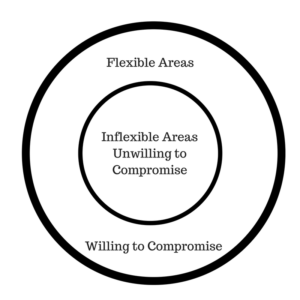There are thousands of different ways we ask for attention from our partner or significant other. Some of us may resort to calling each other on the phone or greeting each other with a “Hey, I’m home” when we get home from work. These days it might be through a text message, a “like” on Facebook or a “tweet” on Twitter. No matter how we reach out to our partner, the reason behind it is still the same — we are seeking attention and affirmation.
John Gottman calls these moments “bids for attention.” These little bids might not seem like a big deal, but they add up after a while and can be the difference between feeling supported and cared for by your partner or feeling unhappy and alone in your relationship. In his research, he discusses how arguments or fights are usually started over one person getting upset because the other did not “answer their bid” or give them attention when they reached out for it.
Why do these failed bids result in arguments? Most bids are not delivered overtly; they are subtle and can often be missed. Bids also may not be delivered so sweetly. A “Hi, I’m home and I want attention after my long day” is more often than not delivered in a “My day at work was horrible! I had back-to-back meetings and am so tired I can’t even think!” If I heard that from my partner, I certainly would not think that my partner wanted my attention!
People also make bids by exhibiting actions or behaviors. These are often very hard to ascertain. They could be made in the presence of a partner with a direct action such as sitting closer to him or her, holding the partner’s hand, hugging him or her or doing something less overt such as sighing. Bids can also be made in advance. An example would be performing actions that would be helpful for the relationship or partner, such as making dinner, cleaning up, going to the store to get milk, planning a “date night” etc. What results in the arguments is the person that made the bid then gets angry when his or her efforts go unnoticed. Some people make their action bids more well known by throwing a “did you notice I unloaded the dishwasher?” question out there, but usually, nothing is said and those failed bids just keep piling up. These failed bids add up to consequences where the partner who is not getting his or her bids answered becomes more sensitive to the failed bids and usually picks a fight over something they normally wouldn’t pick a fight about. This is when I usually hear the “our fights come out of nowhere” comment from couples. The fights do not come out of nowhere; they result from one person not getting attention when they bid for it.
An even trickier bid for attention, and in my opinion, the most likely bids to result in an argument, are those bids that we make when we try to get attention by making our partner jealous. If you are not getting attention from your partner, you might be more aware of getting attention elsewhere. Just like the “did you notice I unloaded the dishwasher” comment, one might also point out to a partner “a good-looking woman hit on me today and asked for my number.” What do both of these comments have in common? Both have hidden meanings. Both are saying “I want attention from you.” Why bring up the attention from someone else if you did not want the comment to result in an increase in attention from your partner? Granted, the latter might bring on the emotion of jealousy that clouds the ability to recognize the bid for attention. Just like that bid was not delivered sweetly, the attention from the partner might not be delivered so sweetly either. After all, getting angry at your partner is a form of attention. So the bid did result in attention, but not the kind that was probably wanted.
Why are so many bids (especially bids that involve jealousy) missed? Is it because admitting that we want attention and affirmation from our partners leaves us vulnerable or sounding weak? Is it because simply asking our partner for attention seems silly or childish?
I would argue that if more people started flat out saying to their partners “I want attention” that this would result in the partner answering that bid and giving attention. Try it sometime when you notice your bid is not getting “answered.” Instead of starting an argument, say what you are really desiring, attention.
















